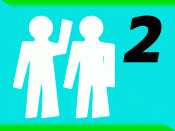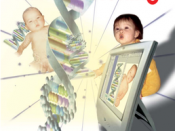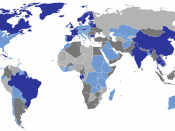The Discovery of Human Cloning
Recently there was a major breakthrough in the scientific research; it involves the mapping of all DNA in a human gene. A couple of years ago, this seems an impossible task for scientist to triumph over. All this revolution in science leads us to believe that the day, when the human being will be cloned, is not far away. Human cloning has always been an issue of controversy, both ethically and religiously.
Examining why cloning might be beneficial, among many cases, it is arguable that parents who are known to be at risk of passing a genetic defect to a child could make use of cloning. A fertilized ovum could be cloned, and the duplicate tested for the disease or disorder. If the clone was free of genetic defects, then the other clone would be as well. The latter could be implanted in the woman and allowed to mature to term.
Moreover, cloning would enable infertile couples to have children of their own rather than using sperm of another man.
Cloning humans would also mean that organs could be cloned, so it would be a source of perfect transplant organs. This would surely be immensely beneficial to millions of unfortunate people around the world that are expected to lose their lives due to failure of a single organ. It is also arguable that a ban on cloning may be unconstitutional and would deprive people of the right to reproduce and restrict the freedom of scientists.
Arguments against cloning are also on a perfectly viable side. Primarily, I believe that cloning would intervene with the normal cycle of life. There would be large number of identical genes, which minimizes the chances of mutation and evolution, the fundamental reason how living things naturally adapt to the changing...


